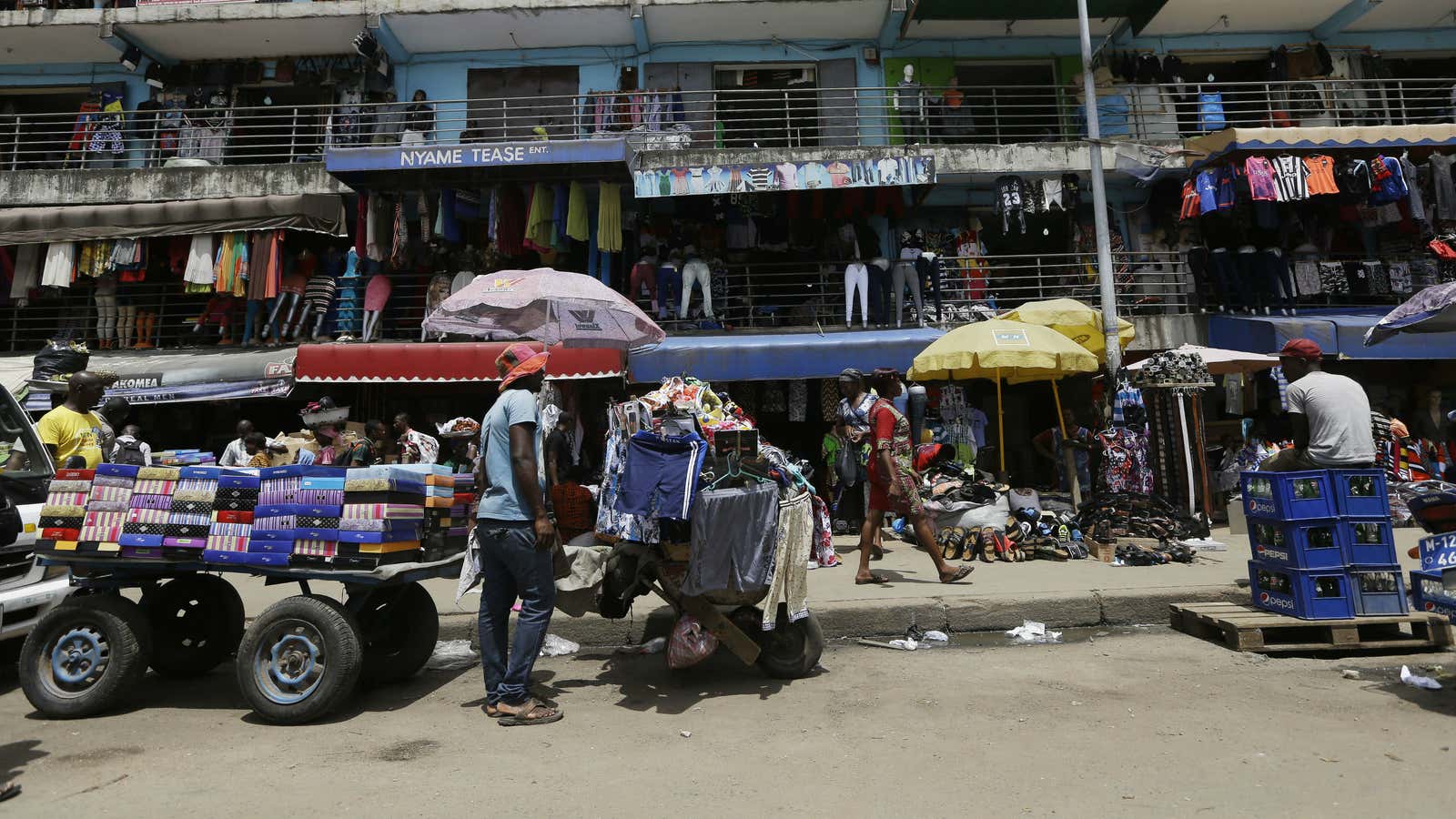Marvodi Mondial Movement (MMM), a 27-year old Russian Ponzi scheme that’s caused distress in a few African countries is adding a new country to its list.
A week after suspending operations in Nigeria, the scheme which describes itself as a “mutual aid fund” has started operations in Ghana, Nigeria’s West African neighbors. Launched quietly last month, MMM Ghana operates a similar model as elsewhere and is starting to reach out to ordinary Ghanaians.
Registered participants pledge and donate money to other participants they get paired with. This donation is regarded as “providing help” (PH). After a month, donors are promised a reimbursement of the full amount donated plus a 30% interest. In a reversal of the initial process, donors can “get help” (GH) after being paired with other participants who pay them their initial cash plus interest. Leveraging on Ghana’s faltering economy, the scheme brands itself as a form of social wealth redistribution system.
A similar tact worked in Nigeria where the economy has been stuck in a recession for much of the year. Amid high unemployment rates and difficult economic realities, MMM quickly became popular as participants, including students who risked their tuition, sought a 30% profit—much higher than what local banks offer. At the time of suspending operations, MMM had garnered more than 2.4 million Nigerian participants despite repeated warnings from government authorities.
If Ghanaians need some insight into the life-cycle of MMM, they can look at its operations elsewhere. Before freezing its Nigeria operation, MMM had employed a similar model in other African countries.
In South Africa, the scheme collapsed and was forced to start over after what it described as “persecution” by the media. Like in Nigeria where it blamed its collapse on “the constant frenzy provoked by the authorities in the mass media”, MMM claims any warnings by government authorities about its questionable operations are a ploy to sabotage the success of the scheme.
In Zimbabwe, MMM participants were worse off as the scheme slashed withdrawal exchange rates after it temporarily shut down operations. Per the new rates, participants ended up losing 80% of their money. The scheme still operates in Kenya, where it promises a 40% monthly interest rate, but it’s also been subject to warnings of the country’s central bank.
